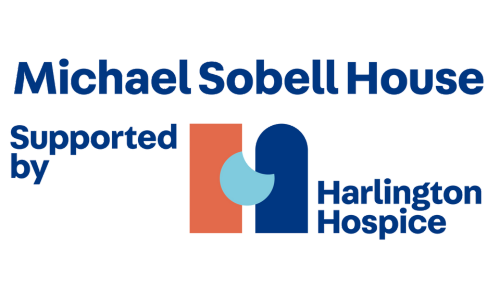Harlington Hospice’s Child and Adolescent Bereavement Service (CABS) has successfully secured National Lottery Community Funding for a project about Neurodiversity and grief, specifically focusing on Psychoeducation and Parent and Carer Support. Since receiving this grant CABS has launched its first series of Parent Support Groups taking place from March till June 2023.
In the past few years Harlington Hospice’s Child & Adolescent Bereavement Service (CABS) has seen a marked increase in referrals for children and young people living with autism. This is due to a number of reasons, including the impact and consequences of the COVID-19 pandemic (sudden losses and missing important grieving rituals), a growing awareness of the importance of bereavement support, and increasing understanding of how people living with autism grieve. Alongside this referral increase is the stark reminder of the lack of bereavement provision for people who are neurodiverse.
CABS research found that many of the healthcare systems and teams have insufficient skills and resources to meet the increasing demands to provide appropriate and timely support. It is this deficit in provision that drives CABS to develop the service within the London Borough of Hillingdon and adapt to the needs of neurodiverse clients. In recognition of its own limits, CABS has been working in collaboration with other young person charities and services, such as the Child and Adolescent Mental Health Service (CAMHS), Stronger Families, Hillingdon Autistic Care and Support, Special Educational Needs Team at Hillingdon, Local schools, Young Carers Trust and others. With funding from the National Lottery Community Fund, the team is continuing to develop a pilot project that focuses on supporting and educating parents and carers of children and young people living with autism.
It can feel like a very lonely and isolating experience for a parent to go through loss and bereavement whilst not knowing how best to support the child in their care. Often parents and caregivers of young people living with autism do not have access to any external support. With the £7859 from the National Lottery Community Fund, CABS is working towards broadening access to psychological support for neurodiverse clients and improving collaboration with external services. They are also striving to help parents and families of bereaved children and young people living with autism understand grief responses.
CABS’ pilot aims to establish Parent Support Groups. These groups are designed to provide parents and carers of children living with autism with psychoeducation about grief and autism and to establish a space of peer-support. They will discuss how to manage challenging behaviour triggered by grief, have difficult conversations in an honest and age-appropriate manner and highlight the importance of emotional and physical self-care.

One of the core values of CABS and its team of Art Therapists is inclusivity, underpinned by a belief that the service must reflect the diversity of human experience, especially in grief and bereavement. Paula Boyle, Principal Lead for Psychological and Emotional Services, explains that “We are adapting our service to the needs of the families we work with. We view people as not being defined by diagnosis but through the wholeness of their personality.” Alongside the Parent Support Groups, a new collaborative research project is being established to improve bereavement service provision. This research looks at the importance of adapting service provision for the needs of neurodiverse clients to address existing health inequalities; challenging misconceptions of neurodiverse grief; and developing greater training for the professional therapist community. The team will work together with service users and families to ensure their voices are recognised and included. This collaborative approach will provide significant value and insights into understanding the notion of neurodiverse grief responses and the accessibility of services. This research was presented at Hospice UK National Conference 2022 and the poster can be found on the CABS webpage here. The poster was voted by the British Medical Journal Supportive and Palliative Care as the winner of the Hospice UK Conference poster exhibition.
CABS is launching its first series of Parent Support Groups in March 2023. This series of four group sessions will take place on the last Thursday of each month, focussing on supporting parents and carers of neurodiverse children to understand how to deal with change and loss. The four sessions will cover the topics ‘Loss, change, and neurodiversity’; ‘Coping with challenging behaviours: what I can do as a parent’; ‘Family traditions and beliefs in managing grief’; and ‘Communication: conversations within families and beyond’. Each group will have two important elements: an educational presentation and informal group discussion facilitated by two experienced Psychotherapists. You can find more information and how to sign up to these Parent Support Groups on our website.
This project is important for a number of reasons: to ensure that children and young people living with autism and their families are supported throughout the bereavement process, to raise awareness about the different ways grief can be expressed and experienced, and to alleviate pressure on other services.
It is our belief that families should not should face barriers to accessing healthcare and support, whether that be relating to physical or mental health. The CABS team is committed to challenging healthcare inequalities and understanding the complexity of neurodiverse grief.








